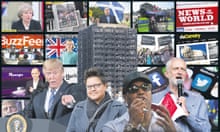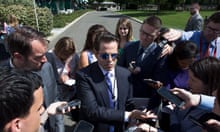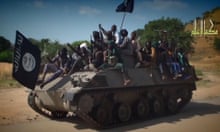John Lloyd is one of Britain’s most perceptive journalists, as anyone who remembers his Moscow years for the FT can attest. He is also, these days, a senior researcher for the Reuters Institute at Oxford University. So when he sets out to write a magisterial account of “the global battle for news and information”, he’s ideally equipped for the task.
Lloyd inevitably links freedom of the press to democracy itself. Without independent media doing a determined reporting job, there can be no true democracy. But see how creeping oppression – and the absence of any settled online funding model – silences or impoverishes newsrooms around the world.
He begins in China as President Xi Jinping lays down a modern version of the old Maoist dictum. “We must unwaveringly persist in the principle that the party manages the media, persist in politicians running periodicals, TV stations and news websites.”
For a few years in the 1990s, investigative journalists began to find traction. There was a sense of challenge and impending liberation. No more. Xi operates a policy of noodles and circuses. The most populous nation on Earth has stifled press freedom. It is, in a cruder way, the path Russia has followed, seeing free media grow haphazardly under Yeltsin, then slowly brought to heel through Putin’s years.
Is there hope? It came and died swiftly during the Arab spring. Egyptians, more fearful of the Muslim Brotherhood than renewed military rule, turned to Field Marshal al-Sisi, who – with the Saudis – now leads the charge to shut down al-Jazeera and mute alternative media narratives. Sisi works (in the quoted words of one Cairo commentator) through “a private sector largely linked to the regime that defies the nature of an ‘independent’ media”. Shades of President Erdoğan’s early strategy of suppression in Turkey before a failed coup gave him cover to lock up press critics in their hundreds.
Sometimes – in Ethiopia, say – there’s a spark of resilience to the journalism that has been snuffed out. Sometimes – in Saudi Arabia – the journalism seems “more a matter of providing contemporary scripts for a morality play than a description of events”; docile, dull and defeated. Sometimes – and increasingly in India – a compliant corporate camaraderie shuts its eyes to growing corruption. Sometimes – as in Mexico – reporters and editors are brutally murdered as the drugs cartels defend their patch. Sometimes – as in South Africa – the bright hopes of liberation from apartheid grow tangled in a complex power struggle.
Lloyd doesn’t just describe the plight of free journalists in countries like these. He goes there and talks to them. He reports a growing crisis that sees democracy itself weakened by attrition. The countries on the frontline of media freedom are often analysed first-hand, with nuance and a sense of history. They are the battle zone, the core of the fight for media freedom; and the suffering of many of the journalists caught up in this battle (seven Mexican reporters shot dead in the first six months of 2017) compels shock and awe.
Yet any attempt to put new heart and momentum into the spread of global press freedom must also depend on the countries where it has long seemed secure, led by the US and the UK. But here, too, the threats mount. A freedom that cannot sustain itself financially, a freedom at the mercy of politicians or cheque-waving tycoons, a freedom without a settled future in an era of digital upheaval, is a freedom in crisis, too. And, significantly, it is when Lloyd writes from his own experience rather than as a reporter, that his book is at its most tentative, a thesis without answers.
Two British journalists are used as symbols of decline: Kelvin MacKenzie, former editor of the Sun, and poor Piers Morgan, who covers every base from red-top degeneracy to the wasteland of breakfast TV. The past 50 years, in Lloyd’s view, have seen British standards slide far and wide. He rehearses some familiar chestnuts from the Leveson report and laments the inaction that followed. But then (a last-minute twist) he also concludes that “a state-approved regulator is no fix at all”. Let the coming generation of journalists “refashion tabloid journalism into something worthy of their readers”.
Alas! Wan hopes. Or, as Lloyd observes in an adjacent context: “Shallowness of understanding is journalism’s greatest bane.” For you wonder, as he moves from a soiled UK to the erstwhile wonders of US media, full of ethical aspirations and first amendment self-importance, whether he’s really understood the demography that shapes and conditions newspapers – and the readers reporters serve.
America in the 1800s had many competing papers within its big cities. Joseph Pulitzer’s Post-Dispatch was one of five or more papers in St Louis, papers continuously contracting until, with the death of the Globe-Democrat, there was one dominant voice that donned the robes of consensus and aspired to be respected as a pillar of the community. It was the same in New York, when Pulitzer bought his World and saw it locked in competition with Hearst’s Journal as, gradually, 10 or 11 papers shrank into three, with the stately Times offering high seriousness and lofty intentions.
It was consensus and shrinkage that brought earnest aspirations to the American scene. It is competition in search of a secure niche market that makes what’s left of Fleet Street so bitter and sometimes twisted. Lloyd’s supposed new breed of moral tabloid journalists won’t carve out any “worthy” future in such circumstances. But they will be part of profound digital change.
What’s next? Lloyd, maybe inevitably, looks to America again: to BuzzFeed and Vice, current champions of the net, and to Politico, expert exploiter of a discrete market (politics) just as his FT exploits the world of finance. Big niches. That’s shrewd and probably right – though “probably” is as far as anyone can go. The history of the media and the net over two decades now is a saga of wrong assumptions and cancelled solutions. No one knows.
What we ought to know, though, at the end of John Lloyd’s world tour, is that the media awkward squad, asking difficult questions, turning over stones, has to be part of any tolerably free future. You can raise all manner of problems, bathe in cynicism, wallow in cupidity. But a free press and free broadcasting – off- or online – is not some optional extra. It is vital, but also beset by dangers; and Lloyd, with scholarship and energy, lays many of them bare. The power of the story still matters more than anything.











Comments (…)
Sign in or create your Guardian account to join the discussion